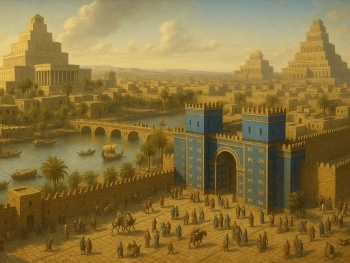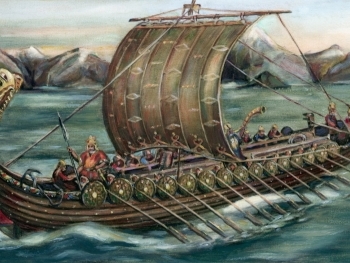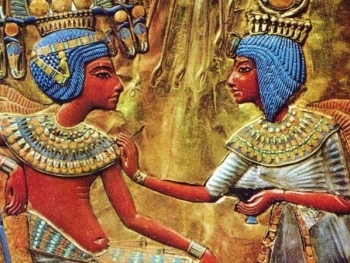
The Rosetta Stone, a remarkable artifact from ancient Egypt, has been pivotal in deciphering hieroglyphics and unlocking the mysteries of Egypt's past. However, it does not explicitly address the Exodus or the story of the Israelites. This absence has led some skeptics to question the historical reliability of the biblical account. To fully explore this topic, we need to consider the nature of ancient Egyptian records, the role of archaeology, and the broader historical context.
The Rosetta Stone: What It Is and What It Isn't
The Rosetta Stone was discovered in 1799 near the town of Rosetta (Rashid) in Egypt. It contains the same text in three scripts: Greek, Demotic, and hieroglyphics. This artifact allowed scholars to decode Egyptian hieroglyphs, providing unparalleled insight into the language and culture of ancient Egypt.
However, the Rosetta Stone is not a historical narrative. It is an administrative decree issued during the reign of Ptolemy V in 196 BCE, over 1,000 years after the time traditionally associated with the Exodus. Its purpose was to affirm the king's authority and announce tax and worship-related reforms, not to recount historical events.
Thus, the Rosetta Stone neither confirms nor disproves the Exodus—it simply does not address it. However, this omission raises broader questions about Egyptian records and the historical silence surrounding the Exodus.
Why Don't Egyptian Records Mention the Exodus?
Ancient Egyptian records are extensive, but they are not exhaustive. Like many ancient civilizations, Egypt maintained records to serve specific political, religious, and administrative purposes. Events that could tarnish the pharaoh's reputation—such as military defeats or the loss of a labor force—were often omitted. The Exodus, as described in the Bible, represents a significant loss for Egypt, both in manpower and in divine authority, and thus might not have been recorded for posterity.
Additionally, much of ancient Egypt's documentation has been lost to time. Monuments erode, papyrus decays, and wars or natural disasters can destroy archives. Even within the surviving records, only a fraction has been excavated and studied.
Archaeological Evidence Supporting the Exodus Narrative
Although the Rosetta Stone does not directly address the Exodus, other evidence provides intriguing clues:
- The Hyksos Expulsion
The Hyksos, a Semitic people who ruled parts of Egypt during the Second Intermediate Period (circa 1650–1550 BCE), were expelled by the native Egyptians. Some scholars suggest parallels between the Hyksos and the Israelites, as both were Semitic and faced expulsion. However, the timelines and details differ significantly. - The Merneptah Stele
Dating to around 1208 BCE, the Merneptah Stele contains the earliest known reference to "Israel" outside the Bible. It describes Israel as a distinct people in Canaan, suggesting their presence in the region shortly after the traditional time of the Exodus. - Avaris and the Semitic Settlements
Excavations at Avaris (modern Tell el-Dab’a), a site in the Nile Delta, reveal a large Semitic population during the period associated with the Israelites' presence in Egypt. These findings align with the biblical account of the Hebrews living in Goshen. - Collapse of the Late Bronze Age
The Exodus narrative describes plagues, natural disasters, and societal upheaval. These elements resonate with the broader collapse of civilizations during the Late Bronze Age (circa 1200 BCE), a period marked by widespread destruction, migration, and the fall of empires.
Alternative Explanations and Interpretations
Scholars have proposed various theories about the Exodus, ranging from a historical event to a theological metaphor. Some suggest it may have been a smaller-scale migration that was later amplified in oral tradition. Others view it as a symbolic narrative emphasizing God's deliverance and justice.
Despite differing interpretations, the absence of explicit Egyptian records does not inherently discredit the Exodus. History often leaves gaps, especially for events involving marginalized groups or those that challenge the dominant power structure.
Theological Insights: The Significance of God's Name
Craig's message also highlighted the importance of God's name, often rendered as Yahweh or Jehovah. In the Exodus narrative, God's name is revealed to Moses as "I Am Who I Am" (Exodus 3:14), signifying His eternal and self-existent nature. The plagues and the parting of the Red Sea underscore God's supremacy over the Egyptian gods and His covenant relationship with Israel.
The absence of Yahweh's name in many modern translations, replaced by titles like "Lord," has been a point of contention. However, the preservation of God's name in versions like the New World Translation and the Jerusalem Bible reflects an effort to maintain its centrality in worship and understanding.
The Rosetta Stone does not disprove the Exodus, nor does it confirm it. Instead, it invites us to approach ancient history with humility and curiosity. While the lack of direct Egyptian references to the Exodus is notable, it is consistent with the selective nature of ancient record-keeping. Archaeology, biblical texts, and historical analysis offer a mosaic of evidence that, when pieced together, suggests the Exodus narrative has a foundation in history.
For believers, the Exodus is more than a historical event—it is a testament to God's power, faithfulness, and the enduring significance of His name. Whether approached as history, theology, or both, the story continues to inspire and challenge us to seek the truth.
Ancient Egypt Archaeology Bible History Biblical Archaeology Archaeological Discoveries Ancient Egyptian Rosetta Stone Biblical Exodus Archaeological evidence Israelites in Egypt Merneptah Stele Hyksos Yahweh in history Bible and archaeology



















